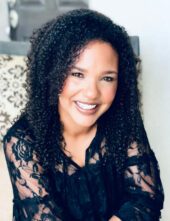(RNS) — A few months ago, Brytni McNeil, a 34-year-old mother of five daughters, was flipping through a copy of a George Washington Carver biography listed in a homeschooling curriculum when she spotted some glaring inaccuracies.
Most notably, enslavers were referred to as “caregivers” who benevolently bestowed their last names on Black people.
“Those subtle lies that creep into material is how a child begins to develop their entire world view. That child grows up thinking, we have no culture, we didn’t even have names,” said McNeil, who lives in Phoenix, Arizona. “You’ll find curriculums that tell half-truths, or don’t leave spaces and room for more questions.”
It’s incidents like these that have led McNeil to join a broader contingent of Black home educators, many of them Christian mothers, who are creating and adopting anti-racist curricula. In 2020, the percentage of Black households opting for homeschooling surged from 3.3% in the spring to 16.1% in the fall, per U.S. Census data.
Despite the recent swell in Black-centered homeschooling, many homeschooling curricula lag far behind when it comes to Black inclusion. And both the racist history of the 1960s homeschooling movement, which attracted families opposed to desegregation, as well as the persistent perception that homeschooling is the exclusive domain of white, conservative Christians act as barriers for Black families who might otherwise consider home education.
But for many Black home educators like McNeil, homeschooling is less a way of protecting kids from the secular influence of public education and instead a way of protecting kids from a racially biased institution. McNeil doesn’t want to shield her kids from reality—but to create a safe space to grapple with truth on her terms.
“I wanted them to be able to wrestle with the beauty and brokenness of our story as Black Americans,” McNeil told Religion News Service in a recent call. “I wanted them to be able to do it in a safe environment where we can hit pause, discuss the hard bits, weep over things that are sad in our history. And I wanted to make sure they had a steady diet of the triumph of our people.”

McNeil’s original introduction to homeschooling was as a child growing up in Nashville, Tennessee, and later Phoenix, Arizona. But though she enjoyed being homeschooled, her curriculum wasn’t of the anti-racist variety.
The daughter of pastors, McNeil said she was raised in churches that prided themselves on the idea of diversity but didn’t alter white-centered power structures and only accepted Black folks who accommodated white expectations and comfortability.
“My understanding of race as a child was essentially to act as though it didn’t exist,” McNeil recalled. “I think in order to survive and thrive in a way, my parents, unfortunately, had to assimilate.”
Surrounded by a political environment that dismissed racism as a relic of the past, McNeil would instinctively rationalize her own encounters with racism. She was repeatedly asked the dehumanizing question, “what are you?” and told she was “pretty for a Black girl.” These incidents made her uncomfortable, but they were just misunderstandings, she thought.


